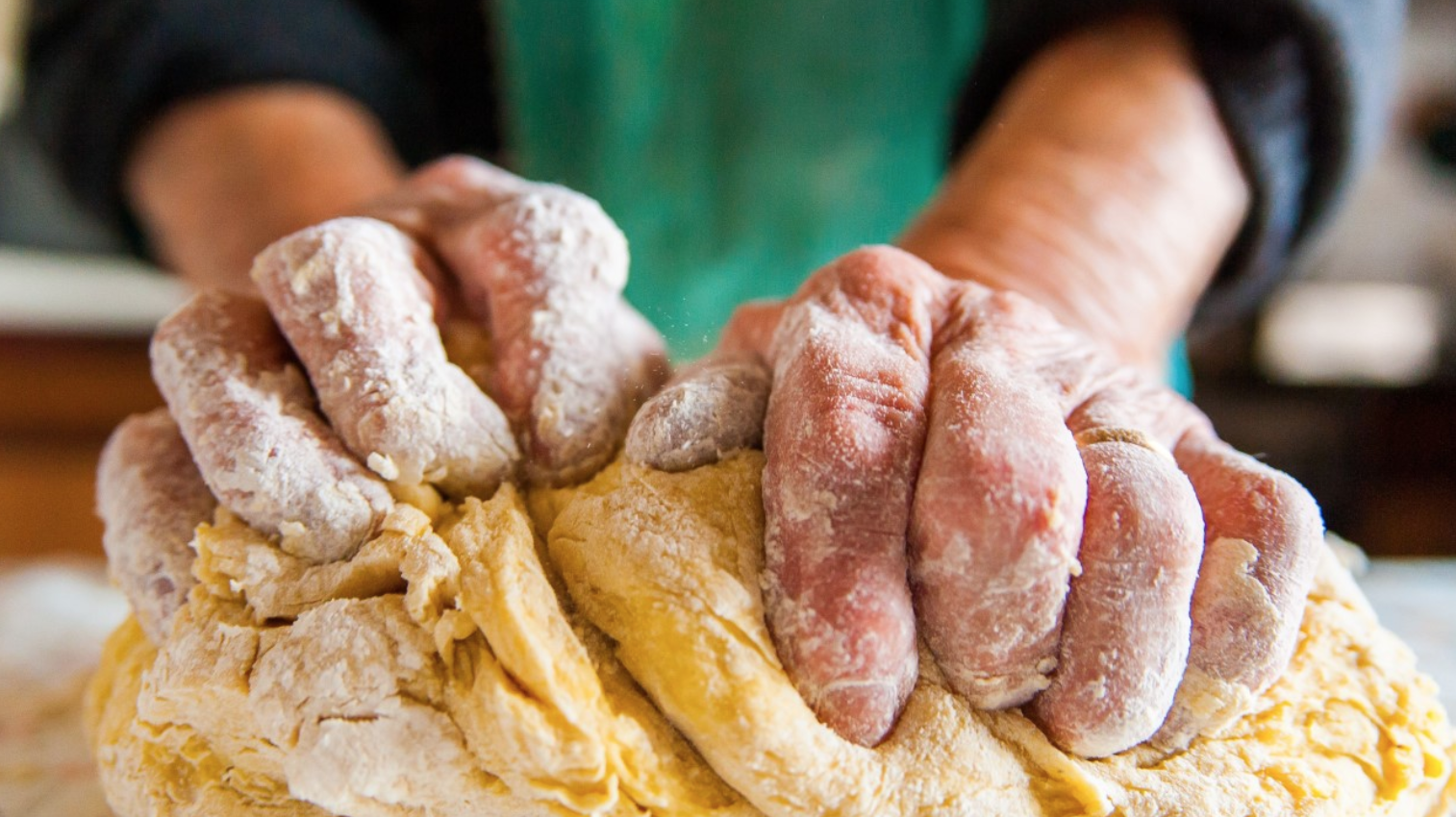THE ART OF ITALIAN CUISINE
Where Flavor and Tradition Harmonize
If you are not an Italian and go to Italy, there are some things you should not do when you cook and eat.
One of my best life experiences was living in Italy, a country that I love with my heart and that gave me one of the best times of my life. In 2010 I lived in Bologna, where I pursued my studies in Political Science & Economics at the Universita di Bologna, the oldest in Europe.
I took all the classes in Italian language a very challenging academic experience that was an enriching journey that pushed me to master the language. I also got an Italian boyfriend that taught me everything about the Italian culture.
University of Bologna, the oldest University in Europe founded in the 11th century
After one month of being together, I cooked a pasta with green peppers, milk and tuna for him (a recipe I made it up myself haha), and from that day he said: “from now on I will cook and you will clean up, you do not know how to cook pasta”. Our deal came up very convenient for me because he taught me all the Italian rules and I got the main recipes not only from Italy but from the southern region of Puglia… (that day he called his friends and told them what I tried to cook for him, he spoke in his italian dialect, but I was able to understand, he basically said it was the most disgusting thing he had ever seen in his life and smiled at me while he was on the phone hahaha)
Anyways, I will explain you why Italian cuisine is one of the best ones in the world.
Naples at the famous pizzeria Da Michelle, they say it has the best pizza of all Italy. 2010
Italians were born in a culture where food is one of the most important elements of the society. People talk about food all the time and they do not accept food that is badly prepared or wrongly mixed. Italians put meticulous attention to details and traditions when it comes to gastronomy.
You will never see Italians eating fast food, frozen food, artificial sauces or pre-made food. The taste of organic vegetables is part of the magic when you eat an Italian meal. And off course, this is due to the loyalty to traditions and culture. Every city and town in Italy has food history from the Middle Age and before and Roman Empire.
Italian cuisine delights the palate with every bite and captivates the heart with its rich history. In this blog, we will delve into the magic of Italian food, exploring why it's not just a meal but art that combines ingredients and rules in perfect harmony.
1. Quality Ingredients: At the heart of Italian cuisine lies the reverence for quality ingredients. From ripe tomatoes and fragrant basil to extra-virgin olive oil and aged Parmigiano-Reggiano, the emphasis is on using the freshest and finest components. The natural flavors of these ingredients shine through in every dish, creating a symphony of taste. Everything must be fresh and organic: from the vegetables at the farmers market or supermarkets, the oily black olives exposed that you can taste, to the fresh papardelle, raviolis and gnochis made in front of your eyes.
2. Simplicity as a Virtue: Italian cooking is all about simplicity. Many traditional Italian dishes have just a handful of ingredients, allowing each one to be appreciated fully. Pasta with garlic, olive oil, or Margherita pizza with tomato, mozzarella, and basil exemplify this minimalist approach. Less is often more in Italian cuisine, and everything is about time. If you cook the past 2 minutes more, its ruined… only 2 minutes changes the taste drastically!! Italians hate overcooked pasta, they call it “scotta”. Do not bother to serve it, none is going to eat it.
3. Regional Diversity: Italy's culinary landscape is a conversion of regional diversity. Each region has its own unique dishes and ingredients, influenced by geography, climate, and history. From the rich and hearty flavors of the north to the fresh and vibrant tastes of the south, exploring Italy's various regions is a gastronomic adventure. In fact, food names are coming from geographical places. For example, I was living in Bologna, the capital of Emiglia Romana region, and this is where "Ragú alla Bolognese” is coming from.
4. Respect for Tradition: Italian cuisine is steeped in tradition, with recipes passed down through generations. The adherence to time-honored techniques and methods ensures that the essence of Italian food remains intact. Whether it's a creamy carbonara or the hand-rolled pasta, tradition is the secret ingredient.
There is not such a thing as “food innovation”or weird fusions where Italians experiment with new things or tastes that change the essence of the taste, they are very careful and respectful of the traditional recipe. The best cooks in Italy are the “nonnas” or grandmas, they can cook for hours.
When I lived in Italy my italian boyfriend was from the south a very famous region called Puglia. He was from a city called Ugento. During the summer we went to visit his mom and she made for our arrival a seafood pasta where the sugo (sauce) preparation lasted 10 hours!!!! I am not kidding….10 hours!! That day I questioned myself If I really wanted to married an Italian man hahaha
5. The Perfect Pairing: Italian cuisine places great importance on pairing food with the right wine. Italians have mastered the art of selecting wines that complement and enhance the flavors of their dishes. From Chianti with a hearty Bolognese to Pinot Griggio with fresh seafood, the wine and food combinations are impeccable.
One thing I saw in California was Americans drinking wine with pizza!, or in Stockholm Swedes eating pizza with milk! Please do not do those disgusting mixes. Pizza only pairs with beer, period! I entertained my Italian friends telling them all the gastronomy blasphemies the nordics and Americans do with food, to what they reply: "ma che schiffo Nati, non sanno manggiare questi zingari” (that's disgrusting, they do not know how to eat these %$#& ) let’s leave it like this hahaha
6. Freshness: One of the things that happened to me in America, was when I cooked Italian food the first time for my American friends, they were shocked I was doing everything from scratch. They were giving me compliments and I found they were overreacting.
I was cooking carbonara pasta and they were giving me fake parmesan cheese and a weird dry bacon cut in pieces they buy at the supermarket and when I asked for onion they gave me onion spices not the actual vegetable. And then I understood I was in a culture where people do not have time for anything and they eat extremely unhealthy food…
My culture is quite similar to Italian culture in terms of food. We like fresh things. In Italy you will never find in a supermarket those dry garbage quasi vegetables that taste like shit. In fact in Italy the frozen food section is small and normally is for foreginers. Another thing Italians do not do is re-warming the food for later or taking the food in to go boxes to eat it afterwards… In Italy the portions are small with a fair price so you do not have to take it for later.
7. Slow Food Philosophy: The Slow Food movement, born in Italy, advocates for the preservation of traditional cooking methods and the consumption of locally sourced, sustainable ingredients. This philosophy encourages a deeper connection to food and a greater appreciation for the culinary arts.
In fact, I remember back in 2010 I took a class called “Economia della Innovazione” and we had a debate in class about how to standardize Italian food and make it more industrial since the food was so well known around the world. And I enjoyed watching Italians yelling at each other during the debate defending the argument that the day Italian food go through a process of standardization it will loose the essence, the freshness, the richness and the tradition. I had so much fun during that debate, and I understood how important was food for them. Love my Italians.
Thank you for reading, I hope you enjoyed. Italy is a country I love so much, I have written more articles about Italy I will publish soon…. stayed tuned.
Natalia Cortes. Italy, 2016











